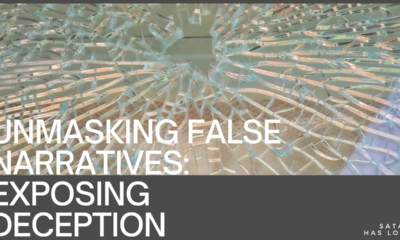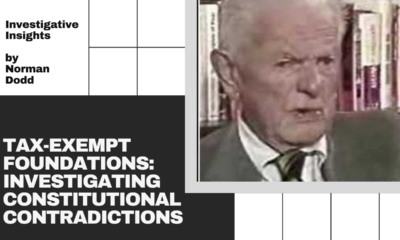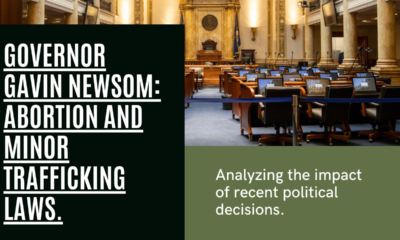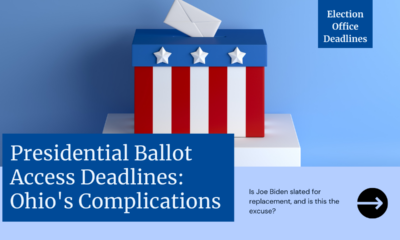Constitution
Special master ordered
Judge Aileen Cannon today ordered a special master in President Trump’s dispute over the raid on his house last month.
Judge Aileen Cannon of the U.S. District Court for the Southern District of Florida has ordered the appointment of a special master to review materials the FBI took during the Trump Raid. The judge furthermore enjoined the government from looking any further at the documents they seized. That injunction will last until the special master has had time to review the documents. He mainly will examine for questions of attorney-client privilege.
What is a special master, and where do we hear about it in this case?
Reportage on the order to appoint a special master comes from:
In addition we have the twenty-four page order that Judge Cannon handed down today. (Trump v. United states, Case No. 22-81294-Civ-Cannon.)
A few definitions will be in order so that people understand what Judge Cannon did today.
- A special master is an officer of the Court with powers and orders to do a certain case-related duty. Special Masters answer only to the court and not to parties to the case at hand or any other case.
- To enjoin a party is usually to tell it to stop doing something, or not to start that thing. The usual expression to that effect reads to enjoin from. The phrase to enjoin to means to order a party to do a particular thing. The usual noun for the effect of enjoining is injunction.
Court orders a special master, though the government tried to deny the need
The government lawyers asserted that the court need not appoint a special master, because it had already reviewed the documents. In other words, the Privilege Review Team (PRT) had already picked out documents holding privileged communications, and withheld these from the Investigative Team. Or did they? Judge Cannon specifically cited “two instances” in which PRT members handed documents to investigators, only to have said investigators tell them, “Oops. These are privileged,” or words to the same or similar effect. Though Judge Cannon did not use the word sloppy, she clearly meant to say it. She also spoke, or cited authorities that spoke, of “a fox guarding the henhouse.” In any case, President Trump had not even heard from the PRT on matters of privileged information.
Furthermore, the special master will be looking at more than attorney-client privilege. He or she will also examine for executive privilege. The (current) White House has “waived” executive privilege regarding anything Trump had in his possession. The Court is having none of that. Judge Cannon wrote that if successors can waive privilege in the name of predecessors, then executive privilege means nothing.
An injunction, and a further hearing
In addition to granting a special master, the Court also enjoined the government from any further review, or use in investigation, of any of the material they seized from Mar-A-Lago, until the special master has had time to finish his or her review.
The court set a deadline of Friday, September 9, 2022, for the two parties to agree on:
- Possible candidates for the job, and
- An order of appointment setting forth the specific duties the special master will have.
President Trump has also asked for a more detailed property receipt, and “the return of any items seized in excess of the search warrant.” The court deferred ruling on those two requests until after the special master makes a report.
A sharp rebuke
By far the sharpest rebuke Judge Cannon gave the government lay in her assertion of subject-matter jurisdiction in the case. With regard to Trump’s property interest in the material the FBI seized, she wrote:
The Government also has acknowledged that it seized some “[p]ersonal effects without evidentiary value” and, by its own estimation, upwards of 500 pages of material potentially subject to attorney-client privilege. Thus, based on the volume and nature of the seized material, the Court is satisfied that Plaintiff has an interest in and need for at least a portion of it, even if the underlying subsidiary detail as to each item cannot reasonably be determined at this time based on the information provided by the Government to date.
Here again Judge Cannon accuses the government, at minimum, of sloppy procedure. Then with regard to the irreparable harm Trump has suffered and might suffer, Judge Cannon wrote:
In addition to being deprived of potentially significant personal documents, which alone creates a real harm, Plaintiff faces an unquantifiable potential harm by way of improper disclosure of sensitive information to the public. Further, Plaintiff is at risk of suffering injury from the Government’s retention and potential use of privileged materials in the course of a process that, thus far, has been closed off to Plaintiff and that has raised at least some concerns as to its efficacy, even if inadvertently so.
Finally, Plaintiff has claimed injury from the threat of future prosecution and the serious, often indelible stigma associated therewith.
Concerning wrongful indictments
In this connection she cited the case of Richey v. Smith, 515F.2d at 1245 (1975), on appeal to what was then the Fifth Judicial Circuit before it became the Eleventh Circuit. That court wrote:
A wrongful indictment is no laughing matter; it often works a grievous, irreparable injury to the person indicted. The stigma cannot be easily erased. In the public mind, the blot on a man’s escutcheon, resulting from such a public accusation of wrongdoing, is seldom wiped out by a subsequent judgment of not guilty. Frequently, the public remembers the accusation, and still suspects guilt, even after an acquittal.
Mr. Dick Morris, retired Judge Andrew Napolitano, and other influencers have already said they expect the government to indict Trump. After all, they all say, any government can get a true bill of indictment against even a ham sandwich. But the White House cannot expect an indictment to stop Trump from running for President again. Nothing in the Constitution precludes this. (The “insurrection or rebellion” clause of the Fourteenth Amendment cannot apply, for two reasons. First, no one has yet adduced one scintilla of evidence that Trump planned or ordered the January 6 event. Second, one must consider the Act of June 6, 1898, chapter 389, 30 Statutes 432, removing the “disability” under that clause.)
Weaponizing indictments deprives them of social force
Furthermore the language of this order, and especially its quote of Richey v. Smith, would make any stigma from any such indictment ineffective. Those who had decided to vote against Trump anyway will doubtless cite this indictment. But the rest of the population will just as easily disregard the indictment. So those who have weaponized the FBI and our federal courts, as a substitute for election campaigns, have only themselves to blame for the failure of any such stigma to “stick.” That goes double after President Biden’s divisive, menacing, and ultimately infuriating Speech, and the legacy media’s fawning reviews of it.
President Trump had this to say today following Judge Cannon’s order:
Remember, it takes courage and “guts” to fight a totally corrupt Department of “Justice” and the FBI. They are being pushed to do the wrong things by many sinister and evil outside [forces]. Until impartiality, wisdom, fairness, and courage are shown by them, our Country can never come back or recover—it will be reduced to being a Third World Nation!
A position CNAV makes no bones about sharing.By “outside forces” President Trump clearly means the World Economic Forum and its leaders.
Today’s order raises the stakes for the FBI, and this White House. Dissension is already growing in the ranks, with calls for Director Chris Wray to resign coming from the ranks. This Special Master order can only make that worse.
Terry A. Hurlbut has been a student of politics, philosophy, and science for more than 35 years. He is a graduate of Yale College and has served as a physician-level laboratory administrator in a 250-bed community hospital. He also is a serious student of the Bible, is conversant in its two primary original languages, and has followed the creation-science movement closely since 1993.
-

 Executive4 days ago
Executive4 days agoThe Hunters Have Now Become The Hunted: Their Cruelties Are Swelling The Ranks Of The People Worldwide!
-

 Clergy3 days ago
Clergy3 days agoWhy Do The American People Let The Corrupt Media & Politicians Set The Propaganda Narrative – Speak On Their Behalf
-

 Constitution4 days ago
Constitution4 days agoCHAPTER 9: Norman Dodd Interview Space Is No Longer the Final Frontier––Reality Is [upcoming release April 2024]
-

 Entertainment Today4 days ago
Entertainment Today4 days agoCivil War (2024) – an incomplete prediction
-
![CHAPTER 10: Objective Reality Is Required for a Free Society Space Is No Longer the Final Frontier—Reality Is [upcoming release May 2024]](https://cnav.news/wp-content/uploads/2024/04/Objective-reality-v-acceptance-400x240.png)
![CHAPTER 10: Objective Reality Is Required for a Free Society Space Is No Longer the Final Frontier—Reality Is [upcoming release May 2024]](https://cnav.news/wp-content/uploads/2024/04/Objective-reality-v-acceptance-80x80.png) Education3 days ago
Education3 days agoCHAPTER 10: Objective Reality Is Required for a Free Society Space Is No Longer the Final Frontier—Reality Is [upcoming release May 2024]
-

 Human Interest2 days ago
Human Interest2 days agoIdaho prepares to defend its abortion ban
-

 Executive5 days ago
Executive5 days agoNational Security Implications of Baltimore Bridge Catastrophe
-

 Executive5 days ago
Executive5 days agoCalifornia Dems Tout Ties to Criminal Leniency Group











[…] Glengarry Glen Ross (1992). The legacy media are complaining today about Donald Trump getting his Special Master, and why he’s still on the streets. Likewise, the alternative media arestilltalking about That […]
[…] Glengarry Glen Ross (1992). The legacy media are complaining today about Donald Trump getting his Special Master, and why he’s still on the streets. Likewise, the alternative media are still talking about That […]
[…] judge ordered the FBI to stop using materials they took in their raid on Trump’s house, until a special master has had a chance to examine them for attorney-client and executive privilege. As such it represents […]
[…] Florida ruled in the lawsuit by President Donald Trump over the Trump Raid. Trump had asked for a Special Master; now he’s got one. Better yet, he got one of the candidates he suggested, after the FBI virtually […]